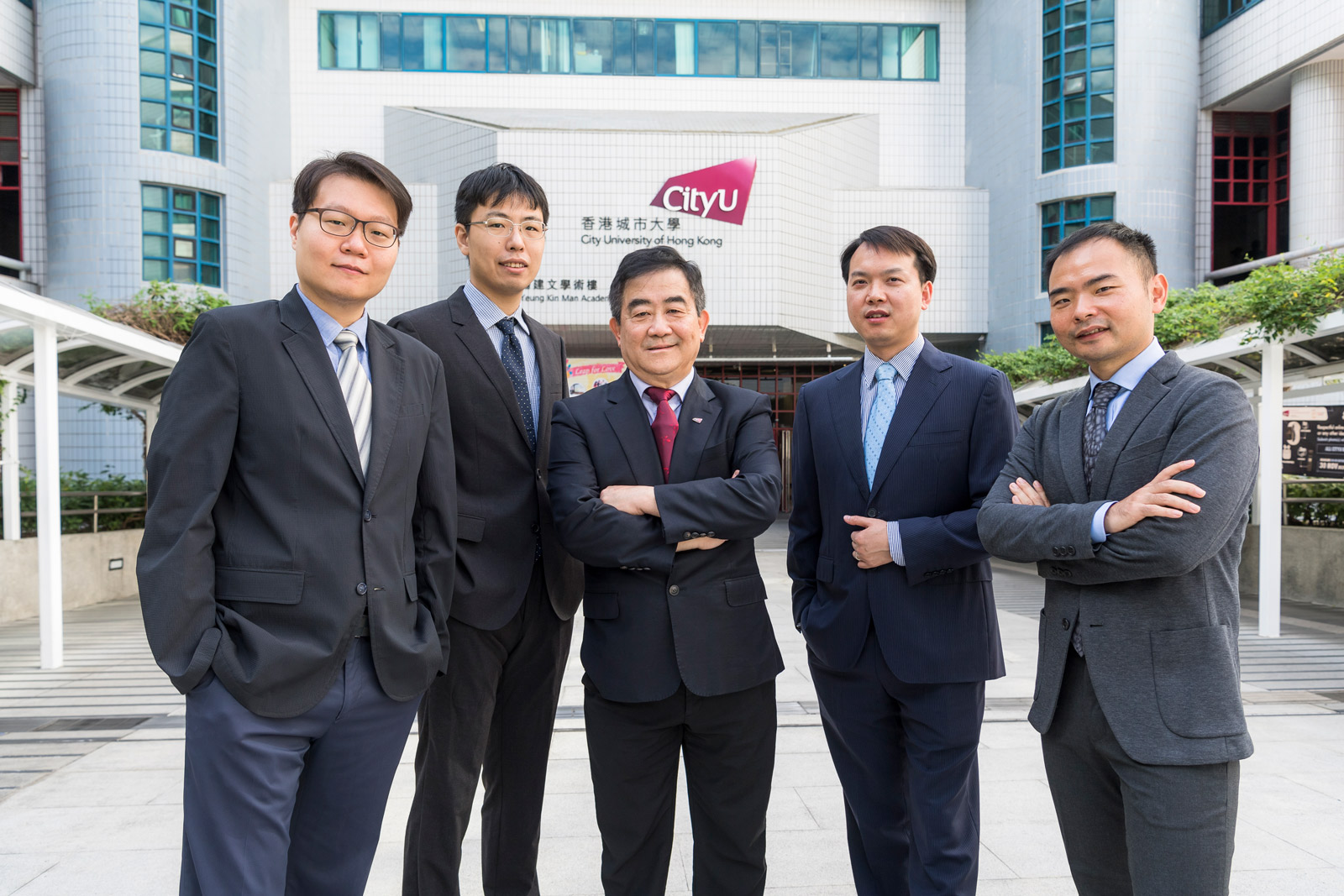Outstanding Research Award recognises distinguished performance

Five faculty members at City University of Hong Kong (CityU) are conferred the Outstanding Research Award this year for their eminent performances in materials science, media and communication, biomedical sciences and data science.
The Selection Panel identifies outstanding researchers whose work has had a significant impact on industrial, economic and social development in Hong Kong and beyond. There are two categories: Outstanding Research Awards and Outstanding Research Awards for Junior Faculty.
The winner for the 2021 Outstanding Research Award is Professor Alex Jen Kwan-yue, Lee Shau Kee Chair Professor of Materials Science in the College of Engineering.
Professor Jen has invented the first family of solution processable and environmentally stable conducting polymers, poly(3-alkylthiophenes), which is a critical development in the field. It has addressed the intractability and instability problems of the materials. His highly original brand of creative synthesis has played a seminal role in the development of high-performance organic/hybrid photonic and electronic materials for ultrahigh speed information processing and highly efficient printable solar cells.
Moreover, he has significantly contributed to nanotechnology by using molecular and biomacromolecular self-assembly to create ordered arrangements of organic/hybrid nanostructures for exploiting their extraordinary properties for potential applications.
He and his team have recently advanced in the organic solar cells field, pushing the efficiencies of these devices to set a new world record. In addition, his work on employing functionalised 2D Metal Organic Frameworks in perovskite solar cells (PVSCs) has enhanced device stability and efficiency, and effectively captured most of the leaked lead ions from the degraded perovskite layer, realising the production of highly efficient, stable, and environmentally friendly PVSCs.
“The development of these innovative printable solar cells will provide transformative and scalable clean energy for a more sustainable environment,” said Professor Jen.
The Outstanding Research Awards for Junior Faculty were awarded to Dr Kim Ki Joon, Associate Professor in the Department of Media and Communication, Dr Lei Dangyuan, Associate Professor in the Department of Materials Science and Engineering, Dr Yan Jian, Assistant Professor in the Department of Biomedical Sciences, and Dr Zhang Qingpeng, Associate Professor in the School of Data Science.
Dr Kim’s research aims to provide a theoretical understanding of the antecedents and consequences of human–technology interaction and technology–mediated communication. He has pursued a programmatic approach to exploring the process by which human interactions with emerging technologies, such as the Internet of Things, AI, and autonomous vehicles, are perceived as meaningful and interactive. Recently, Dr Kim has started developing more comprehensive theoretical models that explain the role played by techno-ethics and cultural differences when using technology.
Dr Lei and his international collaborators recently invented an eco-friendly smart coating for cooling buildings without using air conditioners. The coating comprises conventional building materials, including titanium dioxide nanoparticles, fluorescent microparticles and glass microspheres, which reflect sunlight, minimising heat absorption while simultaneously re-emitting infrared radiation. Dr Lei has also developed water-resistant perovskite semiconductors for two-photon-pumped lasing. The findings broaden perovskite’s applications in optoelectronics and in bioimaging and biosensing. Recently, his team and a collaborator from King’s College London discovered a fundamental mechanism for enhancing second-harmonic generation in symmetry-broken photonic nanocavities.
Dr Yan’s research focuses on unravelling the function of non-protein coding sequences of the genome and their role in disease mechanism, including both noncoding DNA and noncoding RNA, which has significantly improved our understanding of the inheritable risk of diseases. The findings provide a valuable resource and mechanism for finding key biomarkers for Type 2 diabetes diagnostics and treatment. The new technique can be applied to studies of variants associated with other genetic diseases.
Dr Zhang’s research focuses on developing knowledge-enhanced machine learning models to characterise high-dimensional behavioural data for individuals, and modeling human dynamics in complex networks. He emphasises AI-enabled healthcare data analytics for intelligent support for clinical decision making and improving the accuracy of diagnosis, effectiveness of treatment, and efficiency of healthcare systems. This team’s methods can address important healthcare problems, including modeling the outbreak and control measures for the COVID-19 epidemic, recommending anti-cancer drugs and drug combinations, risk stratification of various diseases, and other fields such as finance, transportation, and emergency management.
The Outstanding Research Award rewards research excellence, emphasises the University’s commitment to creating an environment conducive to high-quality research at an internationally competitive level, and enhances the University’s performance in delivering its research agenda.
